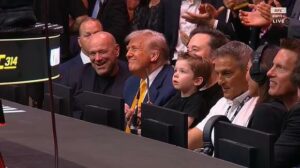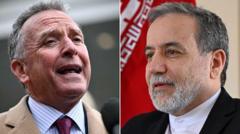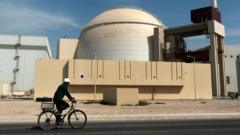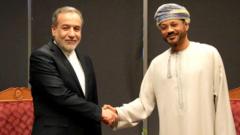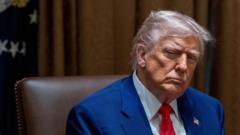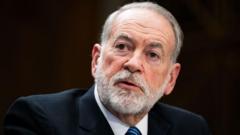Amid rising tensions, the US and Iran are gearing up for consequential nuclear talks, but their differing stances on nuclear ambitions highlight a chasm that may hinder diplomatic progress. The situation underscores the risk of military confrontation while both countries grapple with their internal challenges.
Tensions Escalate as US and Iran Prepare for Crucial Nuclear Negotiations
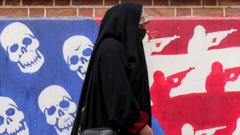
Tensions Escalate as US and Iran Prepare for Crucial Nuclear Negotiations
With a looming deadline for discussions, the gap between US and Iranian positions on nuclear capabilities remains significant, raising concerns over potential conflict.
As the United States and Iran prepare for crucial nuclear negotiations, the significant distance between their respective positions continues to be a concerning issue. US President Donald Trump, eager to deliver on his foreign policy agenda, has pivoted to Iran, viewing the situation as unfinished business from his previous term. With a renewed focus on Iran's nuclear program, Trump faces pressure from domestic and international stakeholders, each holding differing perspectives on how to approach the complex issue.
Iran, maintaining that it does not seek nuclear weapons, stands accused by other nations of aiming to develop the capability to produce nuclear arms, a scenario feared to ignite a nuclear arms race in the Middle East. The Joint Comprehensive Plan of Action (JCPOA), established in 2015 with support from several world powers, aimed to limit Iran's nuclear ambitions in exchange for economic relief. However, after the US withdrawal in 2018, sanctions were reinstated, leading Iran to exceed some previously agreed restrictions.
In the wake of his inauguration, Trump reinstated a “maximum pressure” campaign against Iran, reinstating heavy sanctions and calling for compliance from global oil purchasers. Diplomatically, Trump reached out to Iran's Supreme Leader, Ali Khamenei, proposing negotiations. Direct discussions are reportedly taking place in Oman, with Trump emphasizing the urgency of reaching an agreement to avert military confrontation.
Negotiators face a formidable challenge: the US demands comprehensive dismantling of Iran's nuclear program, halting uranium enrichment, and limiting support for groups like Hezbollah and the Houthis. These terms could provoke dissent within Iran, where economic distress and political instability complicate responses to international pressures.
In the backdrop, Israel has articulated its staunch opposition to any Iranian nuclear capabilities, with Prime Minister Benjamin Netanyahu favoring drastic measures similar to Libya's disarmament in 2003. Should the diplomatic efforts fail, military options remain a sobering possibility; however, executing such plans poses significant risks, especially given Iran’s fortified nuclear sites.
Trump's administration recognizes the challenging path towards dialogue, with the timeframe for reaching consensus notably compressed. The earlier negotiations to reach the JCPOA took two years, underscoring the intricacy of crafting effective international agreements. As the stakes heighten, both nations must carefully navigate their internal and external pressures to find a resolution before the situation escalates further.






